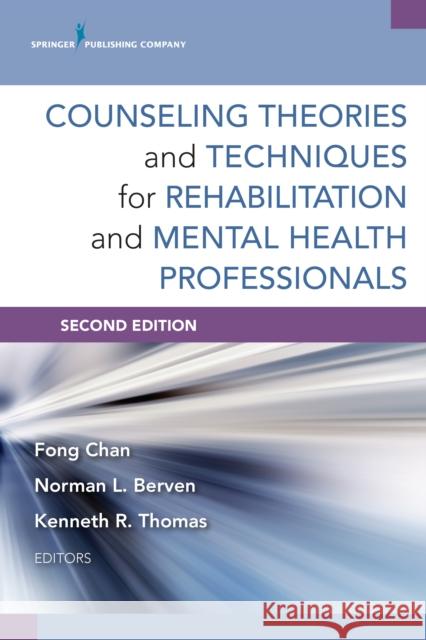Counseling Theories and Techniques for Rehabilitation and Mental Health Professionals » książka
Counseling Theories and Techniques for Rehabilitation and Mental Health Professionals
ISBN-13: 9780826198679 / Angielski / Miękka / 2015 / 512 str.
The only text about counseling theories and techniques developed specifically for upper-level rehabilitation counseling students and practitioners, this book is now fully updated with a focus on evidence-based practice. It reflects the great strides made in incorporating research-based knowledge into counseling/therapy interventions since the first edition's publication nearly 10 years ago. The book disseminates the expertise of many of the most esteemed leaders and academic scholars in rehabilitation counseling. These authors emphasize state-of-the-art scientific evidence that supports the effectiveness of various counseling approaches and techniques for people with and without disabilities. New topics include evidence-based practice related to counseling/psychotherapy and motivational interviewing. Methodologies include person-centered counseling, solution-focused brief therapy, gestalt therapy, cognitive and behavioral therapies, psychodynamic therapy, and an Adlerian approach. The book describes basic counseling skills for rehabilitation, including motivational interviewing, group procedures, family counseling, and career and vocational counseling. Also addressed are counseling for individuals with substance abuse disorders, physical disabilities, psychiatric disabilities, and multicultural issues in counseling. Additionally, the book covers such professional issues as supervision in rehabilitation settings and managing risk. Case studies highlight the application of theories and techniques, and each chapter also includes learning objectives and discussion exercises. Accompanying ancillaries include an instructor's manual containing a sample syllabus, an item bank for developing quizzes and exams, and classroom exercises, and PowerPoint presentations for each chapter. The text also serves as a valuable reference for rehabilitation and related health professions such as nursing, occupational therapy, physical therapy, speech and language therapy, and social work. NEW TO THE SECOND EDITION:
- Emphasizes state-of-the-art scientific evidence that supports the effectiveness of leading rehabilitation counseling theories and techniques
- Focuses on counseling theories and techniques regarding rehabilitation and health and chronic illness and disability
- Serves as a text for upper-level rehabilitation counseling students and a reference for rehabilitation counseling professionals
- Includes new chapters on evidence-based practice regarding counseling and therapy and motivational interviewing
- Instructor's manual and PowerPoint presentations











